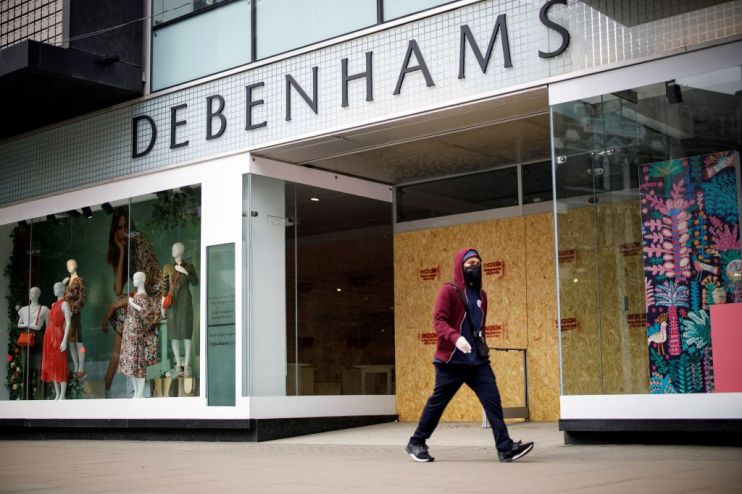Coronavirus: UK retailers have worst month since 2008

UK retailers suffered the biggest fall in sales since the financial crisis in 2008 in the first two months of April as coronavirus lockdown measures battered the sector, a survey has shown.
Every part of the retail sector was hit hard this month, according to the CBI’s distributive trades survey. Even grocers and specialist food and drink shops reported falling sales as the economy all but ground to a halt.
The dire figures come as the UK government debates how best to get the economy back on its feet. Prime Minister Boris Johnson, who has returned to work this week after coming down with coronavirus, yesterday urged caution. He said the country’s hard work in tackling the virus could be undone if restrictions are relaxed too soon.
However, the government is drawing up plans for a gradual easing of some restrictions, which could be announced this week. They reportedly could include allowing some workplaces and “non-essential” shops to reopen in the coming weeks.
The economic cost of the lockdown was laid bare in today’s CBI survey data. The business group’s gauge of sales fell to minus 55 in April, the joint-lowest balance in the survey’s history, from minus three in March. Retailers expect a similar decline next month, the CBI said.
Almost 40 per cent of retailers said they have completely shut down because of coronavirus. Meanwhile, 96 per cent reported cash-flow difficulties as plunging demand left them with obligations but greatly reduced income.
Another report out today said coronavirus was worse for retailers than the financial crisis. The retail health index by professional services firm KPMG and pollster Ipsos fell three points to 71 in the first quarter of the year – a new record low.
On the CBI survey, all retail sub-sectors, including those selling essential items, were hit. The gauge for grocers fell to minus 27 in April, while the specialist food and drinks measure fell to minus four.
This suggests “households may have been dipping into stockpiles built up prior to the lockdown or tightening their belts more generally as incomes take a hit,” said CBI chief economist Rain Newton-Smith.
As sales plunged, close to 45 per cent of retailers said they had temporarily laid off staff while eight per cent reported permanent layoffs.
Newton-Smith said the government’s worker support scheme, which pays 80 per cent of “furloughed” workers’ wages, had helped prevent higher levels of unemployment.
She said the “job retention scheme is providing genuine relief, with many opting for temporary rather than permanent lay-offs”.